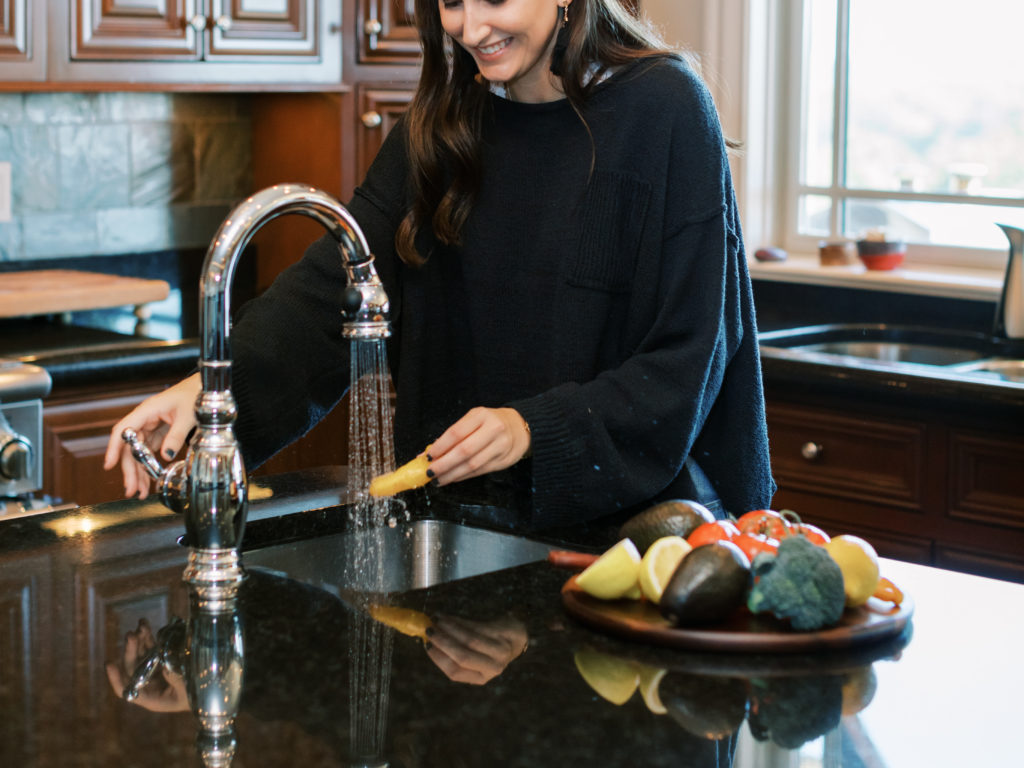Each year, the EWG (environmental working group) announces the Dirty Dozen and the Clean Fifteen. The Dirty Dozen is a list of the top 12 types of produce that have the most pesticide residue. Alternatively, the Clean Fifteen refers to the top 15 types of produce that have the least contamination.
Given the high amounts of toxicity found in the Dirty Dozen, the EWG suggests that consumers should purchase these fruits & veggies organic, if possible. In the 2021 study, EWG found fungicides that can change hormone levels, pesticides that are known carcinogens, and chemicals that can slow brain development in children. Yikes!
Even with various washing and scrubbing methods, the harmful substances remain, and are then consumed. One way to avoid this is to buy organic produce. Organic produce is not a new thing. In fact, the current organic standards are what our grandparents consumed. Conventional food has gotten more and more adulterated.
Organic produce is more expensive, which is why I follow the Dirty Dozen’s list each year. If it is on the list, I buy organic. The list is updated each year to reflect the new findings, however you will find that some crops always make the list.
Dirty Dozen:
- Strawberries
- Spinach
- Kale, collard, & mustard greens
- Nectarines
- Apples
- Grapes
- Cherries
- Peaches
- Pears
- Bell and hot peppers
- Celery
- Tomatoes
Now, thankfully there are some good guys out there too! These are found on the Clean Fifteen list. The produce on this list is the least contaminated, and it is okay to buy conventionally (not organic). Get excited!
Clean Fifteen
- Avocados
- Sweet Corn
- Pineapple
- Onions
- Papaya
- Sweet Peas
- Eggplant
- Asparagus
- Broccoli
- Cabbage
- Kiwi
- Cauliflower
- Mushrooms
- Honeydew
- Cantaloupe
So the short answer is, “no.” You should not panic if it is not organic. Conventional produce is MUCH better for you than processed foods. Don’t let a few pesticides steer you towards the Little Debbie section. This list is only meant to give you a little bit of guidance when it comes to organic vs. conventionally grown produce.
Here are a couple of ideas about how to save money and still buy the cleanest produce:
- Join a CSA, or Community Supported Agriculture group. The produce is extremely fresh, local, and seasonal. Not to mention, you get to meet the farmer that grew it! It is also a very affordable option.
- Shop at a local farmers market. In my experience, the produce is fresher and tastier.
If you want to explore EWG’s findings visit this page.

Be the first to comment